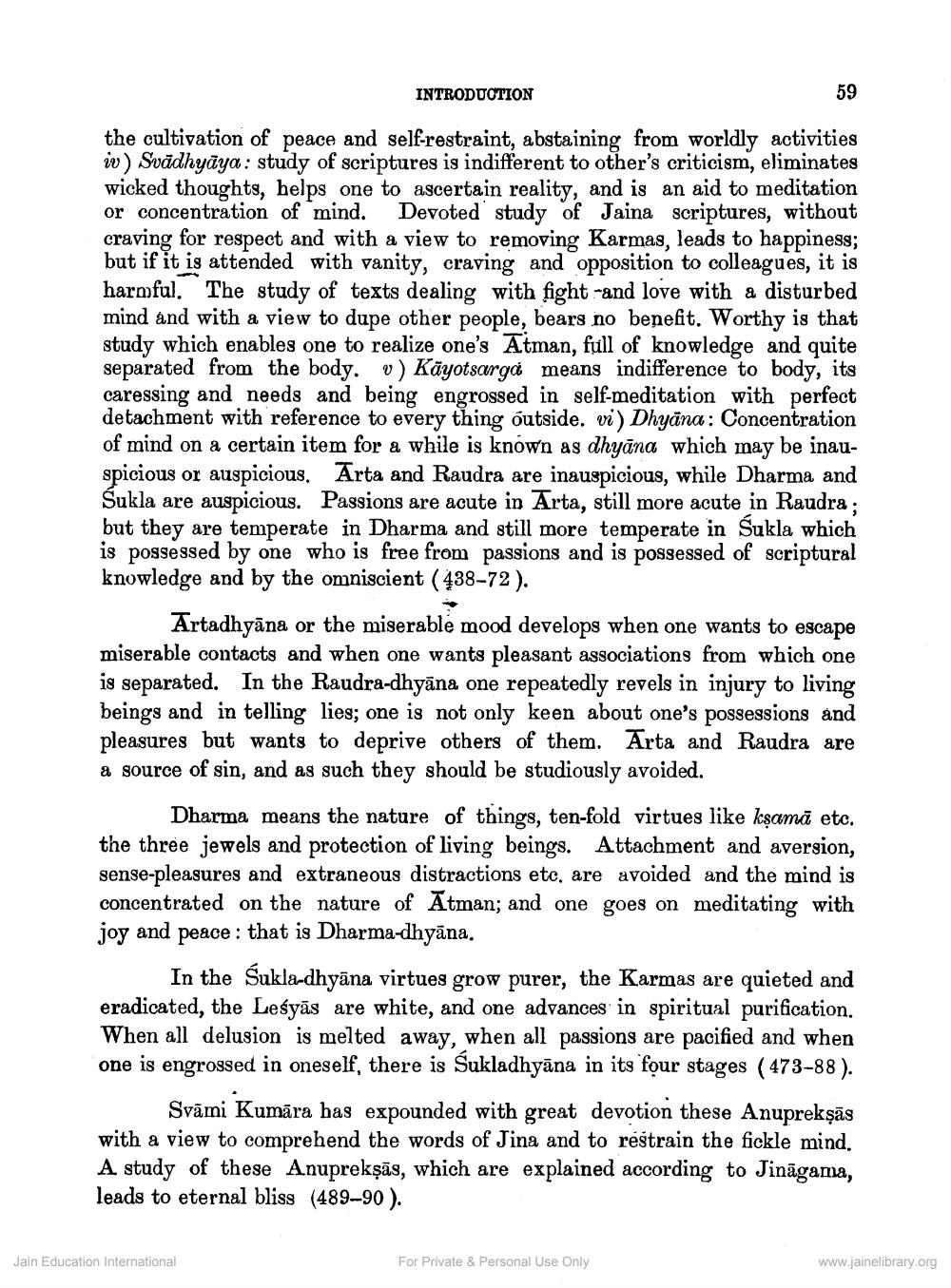________________
INTRODUCTION
59
the cultivation of peace and self-restraint, abstaining from worldly activities iv) Svādhyāya : study of scriptures is indifferent to other's criticism, eliminates wicked thoughts, helps one to ascertain reality, and is an aid to meditation or concentration of mind. Devoted study of Jaina scriptures, without craving for respect and with a view to removing Karmas, leads to happiness; but if it is attended with vanity, craving and opposition to colleagues, it is harmful. The study of texts dealing with fight -and love with a disturbed mind and with a view to dupe other people, bears no benefit. Worthy is that study which enables one to realize one's Atman, full of knowledge and quite separated from the body. v) Kāyotsargó means indifference to body, its caressing and needs and being engrossed in self-meditation with perfect detachment with reference to every thing outside. vi) Dhyāna: Concentration of mind on a certain item for a while is known as dhyāna which may be inauspicious or auspicious. Arta and Raudra are inauspicious, while Dharma and Sukla are auspicious. Passions are acute in Arta, still more acute in Raudra : but they are temperate in Dharma and still more temperate in Sukla which is possessed by one who is free from passions and is possessed of scriptural knowledge and by the omniscient (438-72).
Artadhyāna or the miserable mood develops when one wants to escape miserable contacts and when one wants pleasant associations from which one is separated. In the Raudra-dhyāna one repeatedly revels in injury to living beings and in telling lies; one is not only keen about one's possessions and pleasures but wants to deprive others of them. Arta and Raudra are a source of sin, and as such they should be studiously avoided.
Dharma means the nature of things, ten-fold virtues like ksamă etc. the three jewels and protection of living beings. Attachment and aversion, sense-pleasures and extraneous distractions etc. are avoided and the mind is concentrated on the nature of Atman; and one goes on meditating with joy and peace : that is Dharma-dhyāna.
In the sukla-dhyāna virtues grow purer, the Karmas are quieted and eradicated, the Leśyās are white, and one advances in spiritual purification, When all delusion is melted away, when all passions are pacified and when one is engrossed in oneself, there is Sukladhyāna in its four stages (473-88).
Svāmi Kumāra bas expounded with great devotion these Anuprekşās with a view to comprehend the words of Jina and to restrain the fickle mind. A study of these Anuprekşās, which are explained according to Jināgama, leads to eternal bliss (489-90 ).
Jain Education International
For Private & Personal Use Only
www.jainelibrary.org




